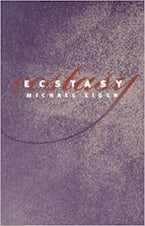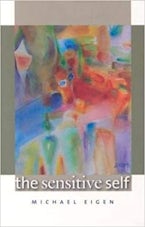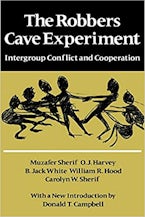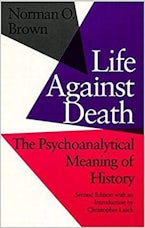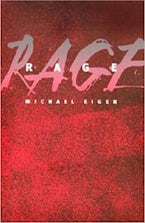
Rage
Series: Disseminations: Psychoanalysis in Contexts
Sales Date: 2002-11-26
192 Pages, 5.50 x 8.50 in
Provides a complex account of a human emotion.
Rage permeates every aspect of our lives. In this thoughtful series of case studies, Michael Eigen shows the ways in which rage is integral to human existence. Along the way, he explores the role of rage in art, religion and contemporary culture; his far-reaching examples range from "the murderous art" of Shakespeare to road rage to the wrath of God in the Old Testament to a consideration of the events of September 11, 2001. Eigen writes that "rage more than most states affords a sense of totality, experiencing one's being with all one's might." Eigen's breadth of cultural knowledge, combined with his respect for and attention to the individuality of a person, come together in providing the reader with a complex account of rage — what it is, where it comes from and what we should do with it. This is a useful book for therapists and laypeople alike.
Introduction
Golden Calf
Radioactive Waves
More Radioactivity, Licking, Beating, Chewing
White Rage of Beauty
Sex of Sorts
Shit
Compliant Rage
Rage Against Self
Penis Falls Of
Underneath Exploring Nothings
Good Feelings
Stinging Nipple
Glass House
True Self and Murder
Snake Bite
Mischievous, Malignant Rage
Pinchas
Pinchas Afterword
God's Personality
Scrubbing One's Toe
Screaming
Potpourri
Afterword
Beyond 9/11
Notes and References
Michael Eigen is a psychologist and psychoanalyst. He is Associate Clinical Professor of Psychology in the Postdoctoral Program in Psychotherapy and Psychoanalysis at New York University, and a Senior Member of the National Psychological Association for Psychoanalysis. He is the author of a number of books, including Ecstasy (Wesleyan, 2001), Toxic Nourishment (1999) and The Psychoanalytic Mystic (1998).
""Textured, rich and riveting, Michael Eigen's work occupies a unique position in the contemporary psychoanalytic conversation. Rage sheds new light on the shadowy world of rage, aggression and the psychic underpinnings of violence.""
~H. H. Covitz, author of Oedipal Paradigms in Collision
"Dramatically memorable and emotionally powerful. Eigen has reclaimed the significance of rage and its centrality to the human psyche."
~Walter A. Davis, author of Deracination: Historicity, Hiroshima, and the Tragic Imperative

